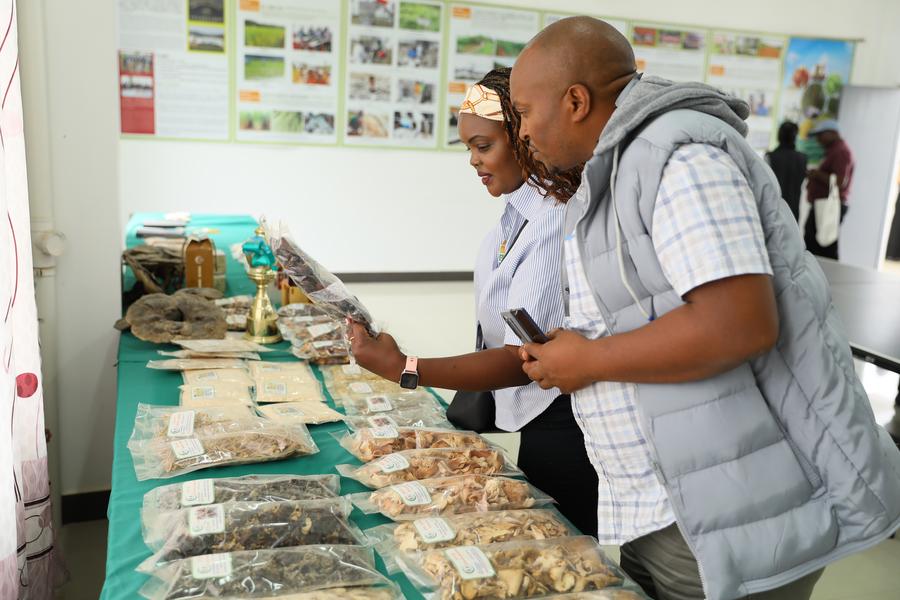Key Takeaways
- Busasamana Technical School in Rwanda is using Juncao technology to improve its school feeding program.
- A training workshop on Juncao technology focused on mushroom cultivation and sustainable agriculture was recently held in Huye District.
- School feeding programs aim to reduce child hunger and enhance meal quality, particularly for low-income students.
Mushroom Farming Initiative in Rwanda
In southern Rwanda, Busasamana Technical School is pioneering mushroom cultivation through Juncao technology to enhance its school feeding program. This initiative addresses persistent nutritional challenges in a sustainable manner, particularly benefiting students from low-income families.
School feeding has been integrated into Rwanda’s education policy to combat child hunger during school hours. Alice Allouette Marie Munyurabanga, a physics teacher and the school feeding coordinator, sees mushroom farming as a valuable opportunity to improve the meals provided to students. “Mushroom cultivation is potentially a good option to fill the gap created when some parents cannot afford to contribute on time,” she noted. However, she emphasized a need for additional training in mushroom cultivation techniques.
The recent Second African Training Workshop on Applications of Juncao Technology, held from July 16-23, brought together 57 participants from five African countries, including educators and agricultural officers. Co-hosted by the UN and other organizations, the workshop covered mushroom farming, livestock feed, and environmental protection. Munyurabanga had previously learned about Juncao technology during a study tour in China and expressed enthusiasm for implementing this knowledge at her school.
Juncao technology, developed by professor Lin Zhanxi in the 1980s, is a multifunctional agricultural innovation utilized not only for growing edible mushrooms but also for livestock feed and ecological restoration. The project gained momentum after its launch at the UN in 2017, with ongoing support from the UN Peace and Development Trust Fund.
Munyurabanga explained that mushrooms were selected for cultivation due to their nutritional value and cost-effectiveness. Currently, her school incorporates mushrooms into student meals at least twice a week. With access to ample agricultural land, the school plans to use Juncao grass to produce its own mushroom substrate.
Munyurabanga aspires for Busasamana Technical School to serve as a model for mushroom cultivation and substrate production, enabling other schools to learn about growing mushrooms and incorporating them into meals. Chen Xiaobin, an expert at the China-Rwanda Agriculture Technology Demonstration Center, indicated a commitment to organizing future workshops specifically for schools to enhance national feeding strategies through Juncao technology.
The content above is a summary. For more details, see the source article.















